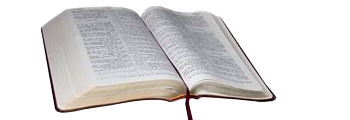
CHURCH OF THE BRETHREN NETWORK
Continuing the work of Jesus : Peacefully ~ Simply ~ Together
UNOFFICIAL WEBSITE OF THE CHURCH OF THE BRETHREN

 |
CHURCH OF THE BRETHREN NETWORK Continuing the work of Jesus : Peacefully ~ Simply ~ Together UNOFFICIAL WEBSITE OF THE CHURCH OF THE BRETHREN |
 |

The Dark Ages
circa 1000 - 1300 AD
Many historians and educators refer to this period with the more neutral term of Middle Ages, because Dark Ages seems a commentary upon the ruling authorities of the period. However, the shining brilliance of the Renaissance is a momentous commentary of the preceding age. With a sudden explosion of learning, the literary achievements of the Renaissance sharply contrasts the darkness, which aptly characterizes the illiteracy and educational deficiencies of the commoner during the preceding Dark Ages. Excluding nobility and clergy, few people knew how to read and write. In fact, the modern occupational term clerical is derived from the word clergy. When common people live in academic ignorance, this fact alone is a commentary of the ruling powers. The Renaissance was a beacon of light that brilliantly shone forth upon the minds of culturally starved people from various intellectual and social classes. So intense became the thirst for learning that the invention of the printing press became an absolute necessity in order to produce the voluminous amount of literary material.
The literary nascence of this period was first voiced by Flavio Biondo of Forli (1388-1463) when he published Historiarum ab Inclinatione Romanorum Imperii Decades (Decades of History from the Deterioration of the Roman Empire) around 1483. Forli describes this historical period as "a suspension of progress - a period of cultural stagnation....as the Dark Ages, between the glory of classical antiquity and the rebirth of that glory in the beginnings of the modern world." His key words are "suspension, stagnation, dark" and each term appropriately describes a general populace devoid of academic motivation.
The glory of the "western half" of the Roman Empire was scattered by invading tribes into loose confederations that gradually coalesced into regional kingdoms without any semblance of government while the "eastern half" of the Empire flourished until 1453 when Byzantium was over run by the Ottoman Turks. Common people were bound to the land and dependent on landlords for protection and basic administration of justice. Authority in the early Roman Church was fragmented itself, mostly among local bishops in scattered monasteries with each Pope having little more than a fatherly preeminence. The momentary rise to power of the Carolingians in the Ninth Century was a brief glimmer of unity in the figure of Charlemagne, but the onslaughts of the Vikings in the Tenth Century forced Europe back into cultural suspension due to both violence and destruction in the short term, plus the lack of sustainable agriculture in the long term. Regular cultivation and harvesting was nearly impossible during constant warfare.
Europe regained its quietude within a century, and experienced a brief period of scholastic achievement with the rise of universities. Invasions, migrations, and population decline had subsided. Towns once again became the focus of civilization and their populations steadily grew. The church became more powerful, ruling directly in central and northern Italy, and indirectly throughout Europe by its extensive system of ecclesiastical courts. The Roman Church no longer saw itself as God's kingdom in exile because of tribal warfare that continuously ravaged Europe. It became the central institution of power, dominating feudal lords, kings, and their kingdoms. The appearance of stability permitted a momentary rise in literature, architecture, and painting. Italian merchant-bankers penetrated much of Europe, Britain, and North Africa. One attribute of commerce is its tendency to regulate its participants; thus, Italy was to become a seat of power and authority, both economically and ecclesiastically. The black plague of the 1340's was interpreted by many as divine retribution which enhanced the image of the Papacy as God's presence on earth in the minds of citizens who appealed to it for deliverance. All these circumstances allowed the Roman Church to become encompassing, worldly, and gradually more corrupt, in spite of momentary endeavors to reform.
It is a sad reality of humankind that one of the most effective tools of absolute power by any ruling class, is the persistent maintenance of ignorance and unawareness throughout the class that is being governed.
Written by Ronald J. Gordon as extended information for other major articles